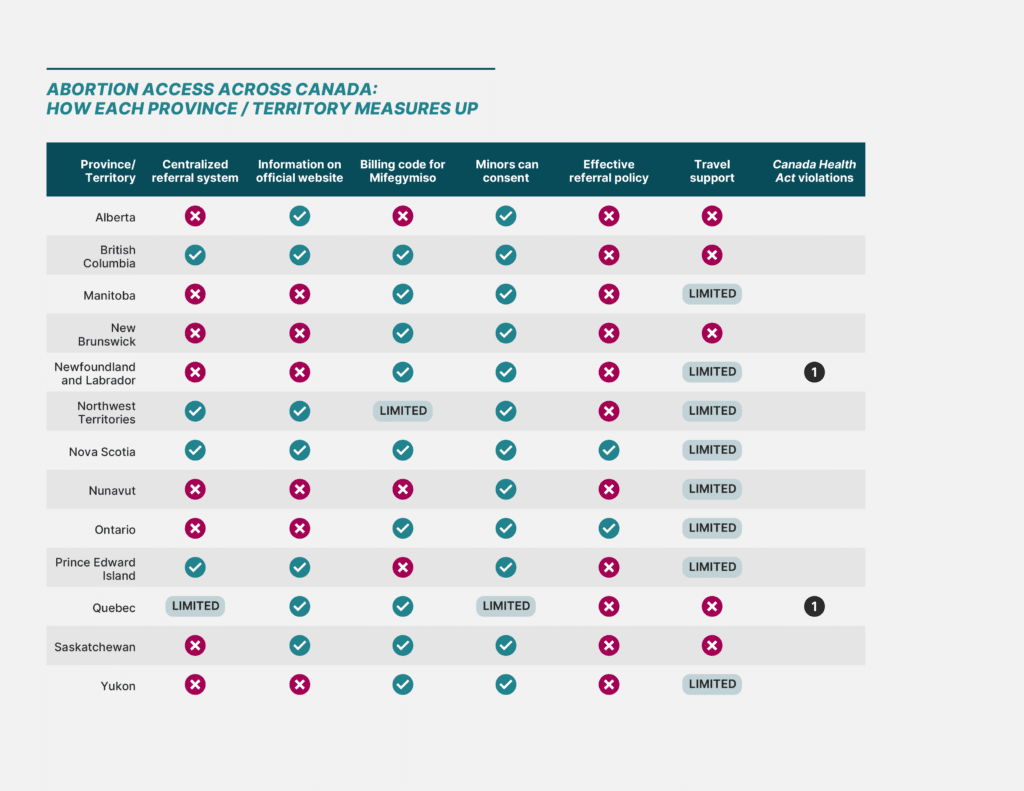Action Canada for Sexual Health and Rights and the Women’s Legal Action and Education Fund (LEAF) have launched the Abortion Access Tracker, a website that illustrates the legal landscape of abortion in Canada and the reality of accessing abortion care across the country. Amidst rising attacks on sexual and reproductive rights in Canada and globally, the Abortion Access Tracker is an indispensable tool for advocates, policymakers, and journalists working to protect and strengthen access to abortion in Canada.
Visit the Abortion Access Tracker
Abortion is a safe and common procedure that 1 in 3 people who can get pregnant will need to access in their lifetime.1 While we have seen great progress in improving access with the introduction of the abortion pill and political will to protect the right to self-determination, there’s still work to be done to ensure that access to abortion is equitable. The Abortion Access Tracker highlights persisting barriers, as well as discrepancies in laws, policies, and regulations between provinces and territories that make access better in certain regions over others.
The Abortion Access Tracker expands on Action Canada’s Access at a Glance resource and LEAF’s Access to Choice: The Legal Framework for Abortion Access in Nova Scotia resource. Through it, we aim to better understand gaps, as well as identify opportunities to protect and improve abortion access through policy and law.
Key findings:

- The most common barriers to abortion care include the absence of local services, financial barriers, discrimination, lack of training for providers, lack of provincial/territorial infrastructure, and anti-choice activities including crisis pregnancy centres.
- Only British Columbia, Nova Scotia and Prince Edward Island have a centralized referral system that people can use to find health care providers offering abortion and only half of the provinces/territories have information about abortion on their websites
- Provinces that are in violation of the Canada Health Act when it comes to abortion include New Brunswick and Quebec
- Doctors are allowed to refuse to provide abortion care because of their beliefs, and are only required to provide a referral if they practice in Ontario or Nova Scotia.
- Canada does not need an abortion law. Canada leads the world in having abortion primarily regulated as a healthcare service under the Canada Health Act.
- Minors do not need parental consent to access abortion, except in Quebec, where minors under the age of 14 are required to get parental consent for all medical treatments including abortion care.
1. Norman W. V. (2012). Induced abortion in Canada 1974-2005: trends over the first generation with legal access. Contraception, 85(2), 185–191. https://doi.org/10.1016/j.contraception.2011.06.009



